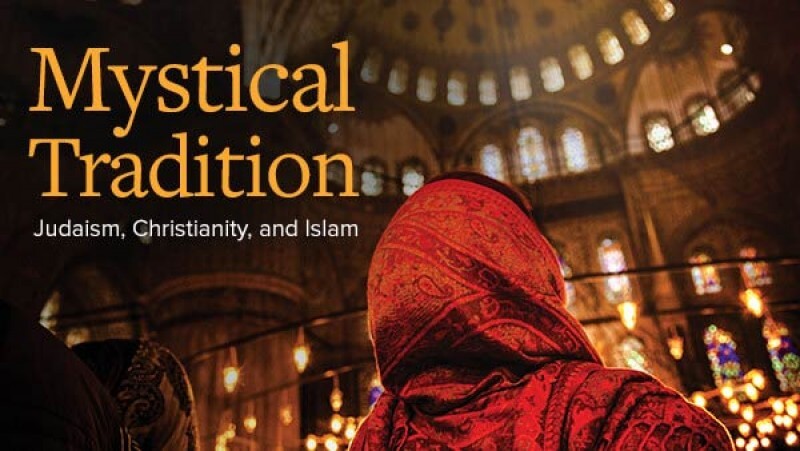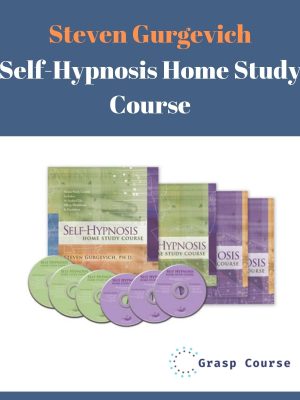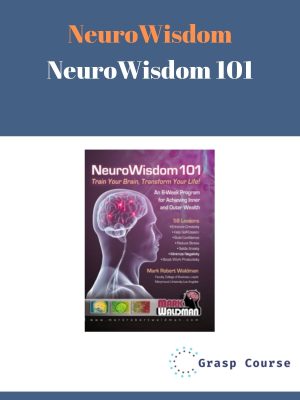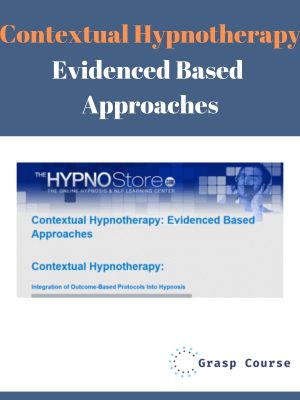TGC – Mystical Tradition: Judaism, Christianity, and Islam
$319.00 Original price was: $319.00.$63.65Current price is: $63.65.
Mystical experiences and practices-including dramatic visions, direct communication with the divine, intense spiritual quests, and hermetic lifestyles-are commonly associated with Eastern cultures. They are thought to be far removed from the monotheistic traditions of Judaism, Christianity, and Islam.
File size : 6.74GB
(avi)
TGC – Mystical Tradition: Judaism, Christianity, and Islam
Mystical experiences and practices-including dramatic visions, direct communication with the divine, intense spiritual quests, and hermetic lifestyles-are commonly associated with Eastern cultures. They are thought to be far removed from the monotheistic traditions of Judaism, Christianity, and Islam.
But consider the following:
- Many of the most important figures in the Jewish Bible had experiences that can be interpreted as mystical, including Moses’s conversation with God as the burning bush and Ezekiel’s vision of the heavenly throne-chariot.
- Jesus Christ, as a figure believed to be the incarnation of God, can be seen as representing the ultimate goal of mystical thought, the unification of human with divine.
- The Islamic prophet Muhammad is believed to have experienced the call of God directly through the angel Gabriel, and throughout his life he reported incidents of mystical encounters, including the divine revelation of the Qur’an, the sacred text of Islam.
In these examples, we encounter a surprising truth: that each of the great three Abrahamic religious traditions-those religions that trace their origins back to the patriarch Abraham-holds the seeds for deep mystical contemplation. But what do most of us know about these mystics and the tradition they sustained?
In Mystical Tradition: Judaism, Christianity, and Islam, you explore this spiritual, literary, and intellectual heritage in these great faiths as it unfolds over three millennia. In 36 enlightening, thought-provoking lectures, award-winning Professor Luke Timothy Johnson of Emory University offers nearly unprecedented access to these seldom studied traditions.
What Is Mysticism?
But what do we mean when we speak of Western mysticism? As Professor Johnson shows, there is no single or simple definition of mysticism. In some traditions, it is rooted in intellectual discipline. In others, it’s based in devotion to prayer and fasting. In still others, it’s defined by ecstatic experience-a glimpse of the divine given as a gift from above.
Just consider these diverse instances of mysticism:
- The writings of Jewish Kabbalah mystic Rabbi Abulafia, whose work includes practical directions for the achievement of religious ecstasy
- The practice of hesychasm, through which medieval Christians recited the “Jesus prayer” to invite divine revelation
- The theological texts of Jalal ad-Din Rumi, a Muslim scholar who explored the mystical implications of love through breathtaking poetry
Mystical Tradition introduces you to the many faces of mysticism, from renowned scholars to simple people striving for personal enlightenment, throughout the centuries. You also contemplate questions about the nature of mysticism itself: How are we to understand mysticism-as literally true, as poetically true, or as a delusion? What is the future of mysticism? As it becomes detached and popularized apart from its religious faiths, can mystical observances retain their original character?
The course also offers a thought-provoking perspective on the nature of human spirituality. As Professor Johnson demonstrates, mystical strains of thought have permeated and influenced these three great religions for centuries, despite opposition from-and, in some cases, persecution by-the mainstream religious community. As you come to see, this persistence in the face of persecution reflects something about human nature: the need to pursue ultimate knowledge and union with a transcendent power.
A Unique Opportunity
For most students, this is a unique opportunity. Many of the sources Professor Johnson draws on are unavailable to general readers. Some of them have only recently been translated into English. Professor Johnson’s course offers a first-time glimpse into this tradition.
A noted religious scholar and former Benedictine monk, Professor Johnson offers an intriguing, enlightening look into these seldom studied traditions and illuminates the rich and complex relationship between mystical contemplation and the Western traditions of faith.
But perhaps most importantly, he invites you to join him as you ponder a new way to understand faith, religion, and the essence of humanity. Explore with Professor Johnson the intriguing and enriching insights that await you in Mystical Tradition: Judaism, Christianity, and Islam.
-
1A Way into the Mystic Ways of the West
-
2Family Resemblances and Differences
-
3The Biblical Roots of Western Mysticism
-
4Mysticism in Early Judaism
-
5Merkabah Mysticism
-
6The Hasidim of Medieval Germany
-
7The Beginnings of Kabbalah
-
8Mature Kabbalah—Zohar
-
9Isaac Luria and Safed Spirituality
-
10Sabbatai Zevi and Messianic Mysticism
-
11The Ba’al Shem Tov and the New Hasidism
-
12Mysticism in Contemporary Judaism
-
13Mystical Elements in the New Testament
-
14Gnostic Christianity
-
15The Spirituality of the Desert
-
16Shaping Christian Mysticism in the East
-
17Eastern Monks and the Hesychastic Tradition
-
18The Mysticism of Western Monasticism
-
19Medieval Female Mystics
-
20Mendicants as Mystics
-
21English Mystics of the 14th Century
-
2215th- and 16th-Century Spanish Mystics
-
23Mysticism among Protestant ReformersWhile Martin Luther and John Calvin are best known for their attacks on what they regarded as the abuses found in medieval monasteries, they also taught a form of Christian piety in which the ascetical tradition continued to find a central place.
-
24Mystical Expressions in Protestantism
-
2520th-Century Mystics
-
26Muhammad the Prophet as Mystic
-
27The House of Islam
-
28The Mystical Sect—Shi’a
-
29The Appearance of Sufism
-
30Early Sufi Masters
-
31The Limits of Mysticism—Al-Ghazzali
-
32Two Masters, Two Streams
-
33Sufism in 12th–14th Century North Africa
-
34Sufi Saints of Persia and India
-
35The Continuing Sufi Tradition
-
36Mysticism in the West Today
Course Features
-
Lectures
0 -
Quizzes
0 -
Duration
Lifetime access -
Skill level
All levels -
Students
0 -
Assessments
Yes
Be the first to review “TGC – Mystical Tradition: Judaism, Christianity, and Islam” Cancel reply
Related products
NLP - Self-help - Dating
NLP - Self-help - Dating
NLP - Self-help - Dating
NLP - Self-help - Dating
NLP - Self-help - Dating
NLP - Self-help - Dating
NLP - Self-help - Dating
NLP - Self-help - Dating
Jacob Sokol – Quadruple Your Coaching Biz 19 expert sessions













Reviews
There are no reviews yet.